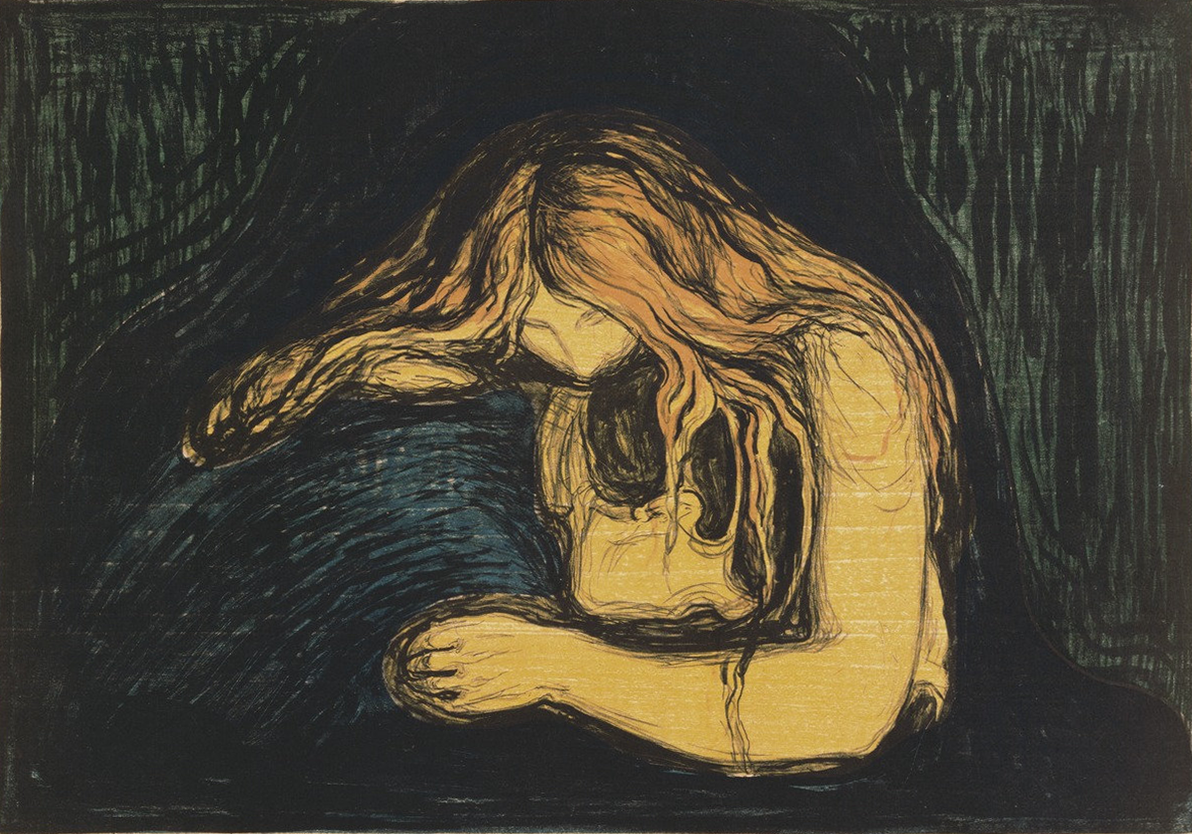Description
Edvard Munch's painting Love and Sorrow or "Vampire" is one of the Norwegian artist's best-known works and is in the collection of the Munch Museum in Oslo.
The interesting thing about this work is its symbolic meaning, since it represents the tension between love and death. The female figure in the painting represents a woman who is in a trance state and appears to be being kissed by a vampire, which in popular tradition symbolizes death.
The work was created at a time when Munch was experimenting with his own personal experiences of pain and loss in his love life. The painting also reflects Munch's interest in symbolism and the idea that art should reflect the artist's inner states.
In addition, the technique used by Munch in this work is interesting, since it combined oil and tempera, which allowed him to create a glaze effect that gives the painting an ethereal and mysterious appearance.
Another interesting fact about the painting Love and Sorrow is that it has been the subject of various interpretations and controversies since its creation in 1893. Some art critics see it as a representation of temptation and seduction, while others interpret it as a metaphor for love as a force that consumes life and leads us to death.
The work has also been the subject of debate due to the identity of the female figure. It has been suggested that it could be a depiction of Munch's lover at the time, Tulla Larsen, or even an image of the artist's sister, Laura, who died at the age of 15.
The painting Amor y Dolor is considered one of the most important works of Symbolist art and has been a source of inspiration for other artists over the years. The image of the female figure in a trance-like state has been used in popular culture and in fashion, demonstrating the lasting impact of Munch's work on popular culture.

